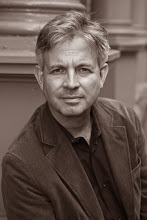
With the practice runs underway at the German Grand Prix in 1961, word spread through the paddock that Enzo Ferrari had once again sent word from Modena that Hill should hold back, permitting von Trips to win the race and collect nine more points. According to a source interviewed by Robert Daley, the New York Times correspondent, the decision was based purely on business:
“Von Trips is to win here and the world championship, too, in recognition of his splendid victory in the rain at the British Grand Prix in July and because this will sell many Ferrari touring cars in Germany. Ferrari’s American market already is booming. He figures that a victory by Hill would not add anything in America.”
At the French Grand Prix in Rheims Hill had reluctantly complied with the order to step aside for von Trips, though it must have struck him as an unsavory European arrangement. But this time, with Hill trailing in the points tally with three races to go, the suggestion that he take a dive stirred him to defiance. On the eve of the race he told Daley that he had not received any instruction to let von Trips win, and that he would not obey any such orders.
“Ferrari can make all the decisions he wants to,” he said. “But the decisions wouldn’t mean anything unless I go along with them. I don’t intend to go along with them.”
As if to prove it, Hill went out and drove a practice lap in 8.52 minutes with an average speed of 95.2 miles. It was the fastest lap ever recorded on the Nurburgring and the first to break the nine minute barrier, which many considered an inviolable barrier.


No comments:
Post a Comment